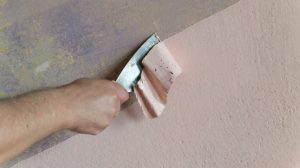Owning a property is a dream for many people. But it can also be a huge financial commitment. You could quickly find yourself over your head financially if you’re not careful. Here are some tips for how to save money after buying a property.
Claim Capital Allowance
Capital allowances are deductions that can be made on the cost of certain capital expenses, such as the purchase price of a property. By claiming capital allowances, you can reduce your taxable income and save money on your taxes.
To qualify for capital allowances, you must be the property owner and use the property for business purposes. If you meet these criteria, you can claim up to 100% of the property’s purchase price as a deduction. This can amount to significant savings on your taxes.
To ensure a smooth claiming process, hire a trusted independent capital allowance firm that can help you throughout. The firm can accurately analyze the total expenditure and determine the allowance amount. This will allow you to monitor your expenses and savings and plan for the future.
Check Your Mortgage Rate
It’s essential to keep an eye on your mortgage rate even after you’ve bought a property. A small change in interest rates can make a big difference to your repayments, so it’s worth checking your rate regularly. There are a few easy ways to do this.
Firstly, check the interest rate your lender currently offers on new loans. Secondly, you can research the current average mortgage rates in your area. Finally, you can speak to a mortgage broker to get an idea of the available rates. By doing some research, you can make sure that you’re getting the best possible deal on your mortgage.
Invest in Energy-Efficient Appliances and Materials
One of the simplest things you can do is to invest in energy-efficient appliances. Many newer models of dishwashers, washing machines, and refrigerators use significantly less energy than older models, and they can quickly pay for themselves with lower utility bills. You can also save money by making sure your home is well insulated.

Adding insulation to your walls and attic effectively keeps heat from escaping and cool air from leaking out in the summer. With proper insulation, you’ll be able to keep your home comfortable while using less energy, and over time, you’ll see significant savings on your energy bills.
Finally, if you’re looking to replace any windows or doors in your home, choose energy-efficient models to help further reduce your energy costs.
Avoid Unnecessary Upgrades and Improvements
After finally finding (and purchasing) the perfect property, it can be tempting to want to make all sorts of upgrades and improvements immediately. However, it’s essential to resist the urge to spend unnecessarily, as this can quickly eat into your budget. Certain upgrades, such as a new roof or updated appliances, will likely add value to your home.
However, there are many other “improvements” that are actually unnecessary and may even decrease the value of your home. For example, installing a pool is often seen as a luxurious addition. However, pools also require significant upkeep and can be dangerous (especially for young children), which may deter some potential buyers.
Shop Around for Insurance
After you have found the perfect property and are ready to make an offer, it is vital to start shopping for insurance. This will ensure you get the best possible rate on your insurance premium.
The first step is to get quotes from a variety of different companies. Once you have a few quotes in hand, it is time to start comparison shopping. When comparing insurance rates, you will need to consider some factors, including the type of coverage, the deductible, and the company’s financial stability. It is also important to read the fine print carefully so that you are aware of any exclusions or limitations in the policy.
Don’t Over-Improving
When making changes, it is best to stick with modest upgrades that will add value without breaking the bank. For example, painting the walls or installing new flooring are inexpensive ways to make a big impact.
On the other hand, undertaking major renovations such as adding an addition or gutting the kitchen should be avoided unless you are confident that you will be able to recoup your investment.
There are several ways to save money after buying a property. First, it is crucial to resist the urge to over-improve the property, as this can cost you more money in the long run. Second, you should shop for insurance to get the best possible rate on your premium. Finally, it is essential to consider the future and how you can save money by making smart choices. By following these tips, you can ensure that you get the most out of your new property and save money.





